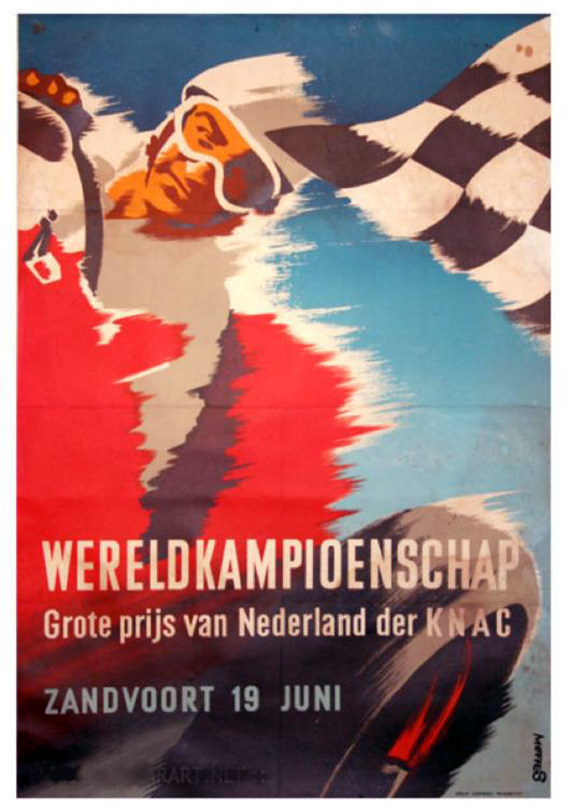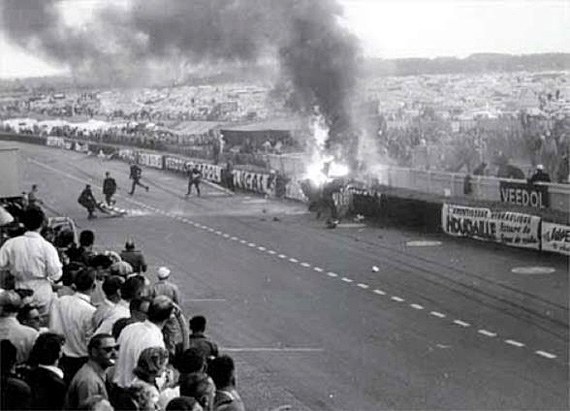
The poster for the 1955 Grand Prix at Zandvoort. It was designed by the well-known Dutch graphic artist Frans Mettes.
The Dutch Grand Prix was scheduled for one week after the disastrous 1955 Le Mans event. Should it have been cancelled? What would you have done? In this exclusive story, VeloceToday correspondent Gijsbert-Paul Berk, who was an assistant to the Royal Netherlands Automobile Club at the time, describes the ensuing crisis and decision.
Story by Gijsbert-Paul Berk
This year’s 24 hour race at Le Mans is now over, but no one who has closely followed motor racing in the fifties can ever forget the horrible accident exactly 60 years ago, on June 11, 1955 during the Le Mans 24 hours race. This black page in the history of motor sports caused the immediate death of the French driver Pierre Bouillin (who drove under the pseudonym of Pierre Levegh), at least 88 spectators, and hundreds of wounded. It was and remains the greatest loss of life due to a motor racing event.
This sudden tragedy posed a great dilemma for the board of the Royal Netherlands Automobile Club (KNAC). Should the Dutch Grand Prix scheduled for the following weekend be canceled or take place as planned?
